Two semesters (Spring on campus & Summer abroad), 14 days, 6 cities
From $1,800 airfare not included | Payments as low as $650
Partial support made possible through LACC's US Department of Education Title VI Grant
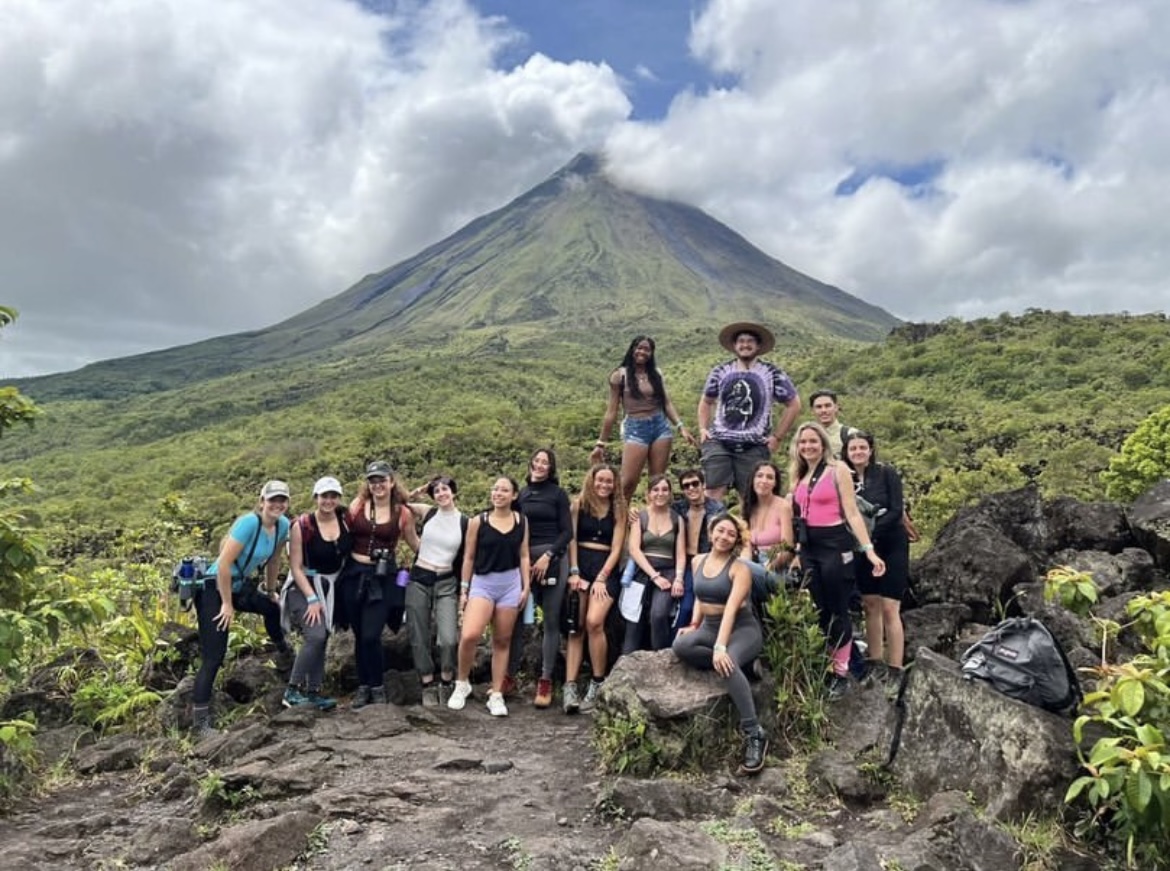
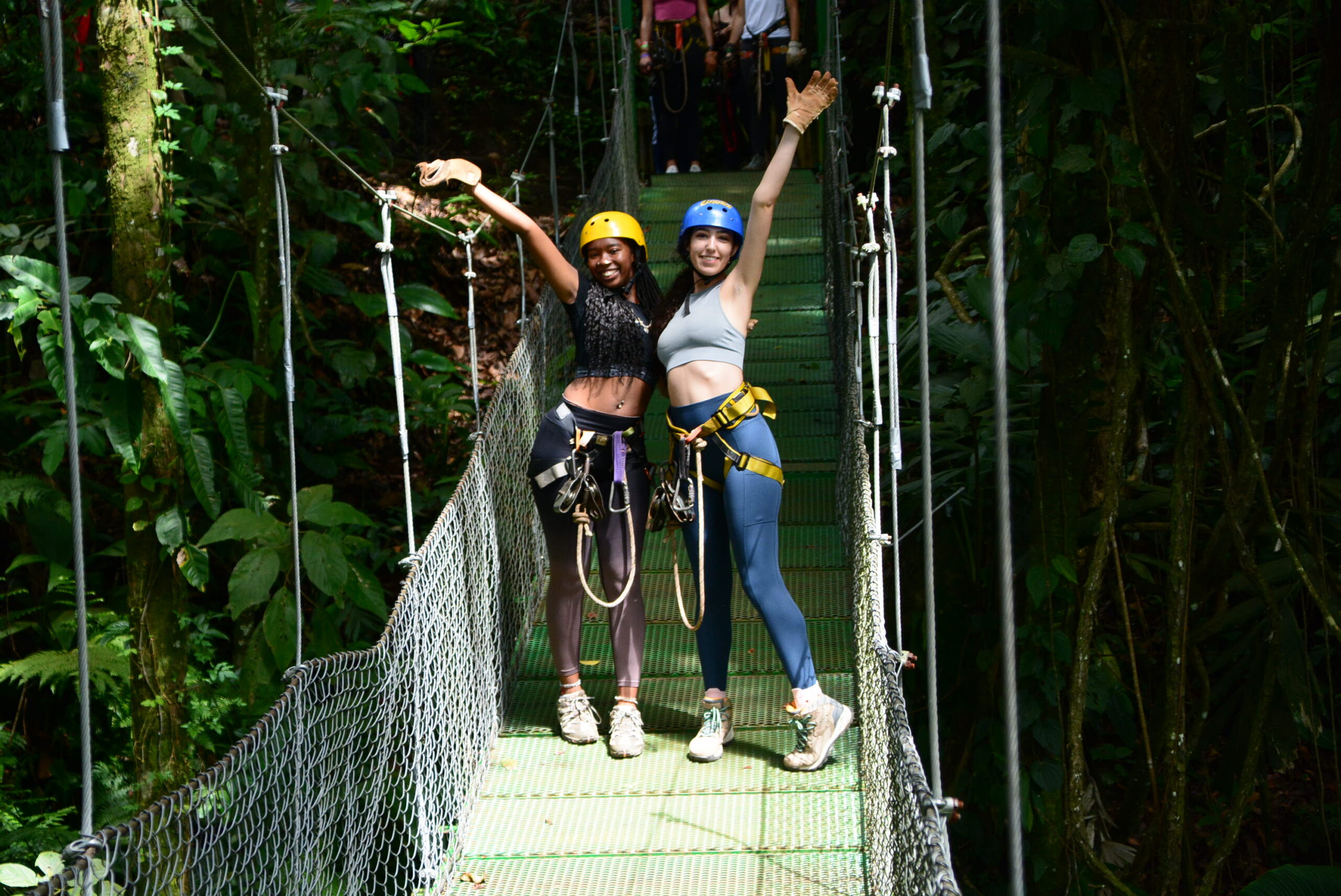
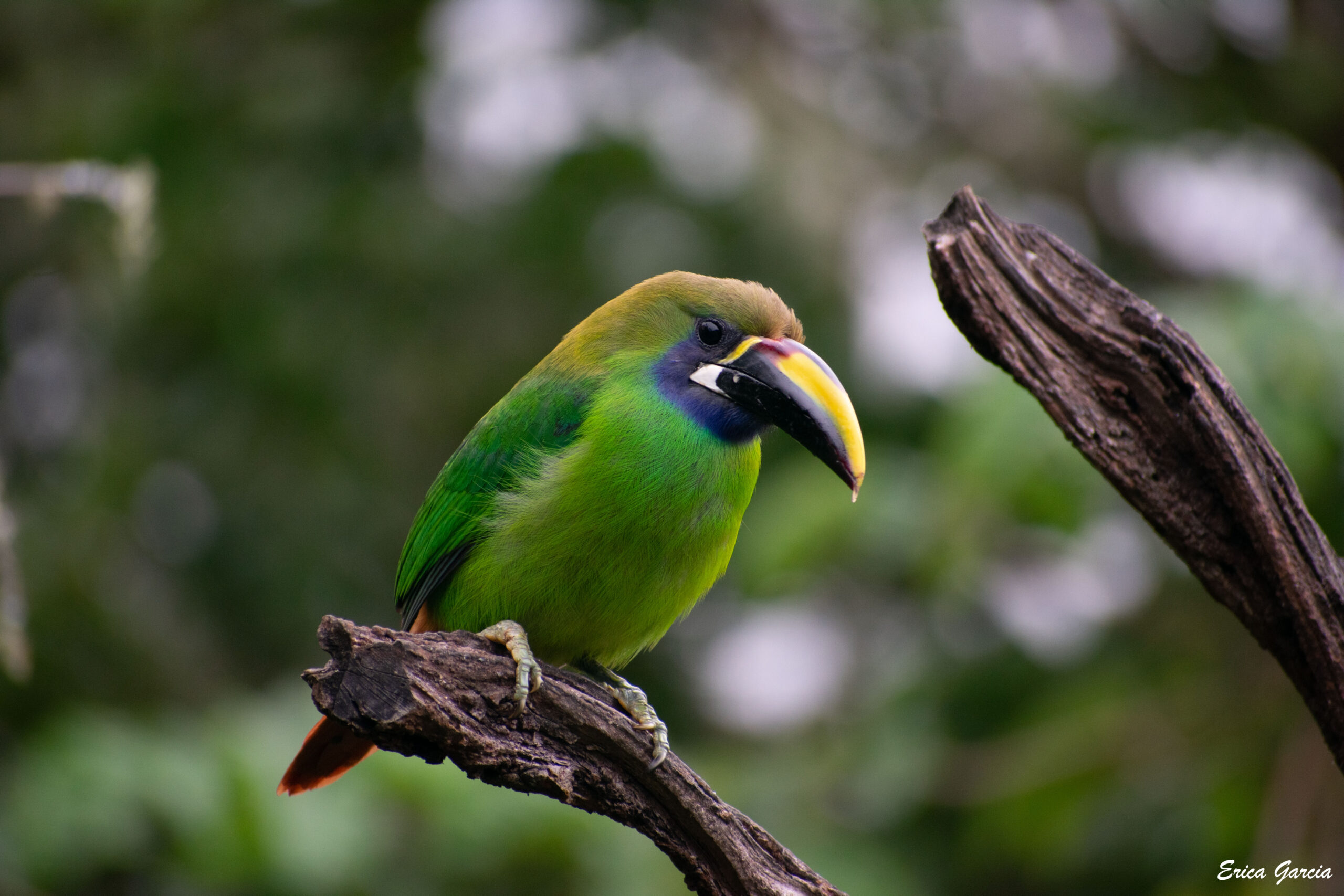
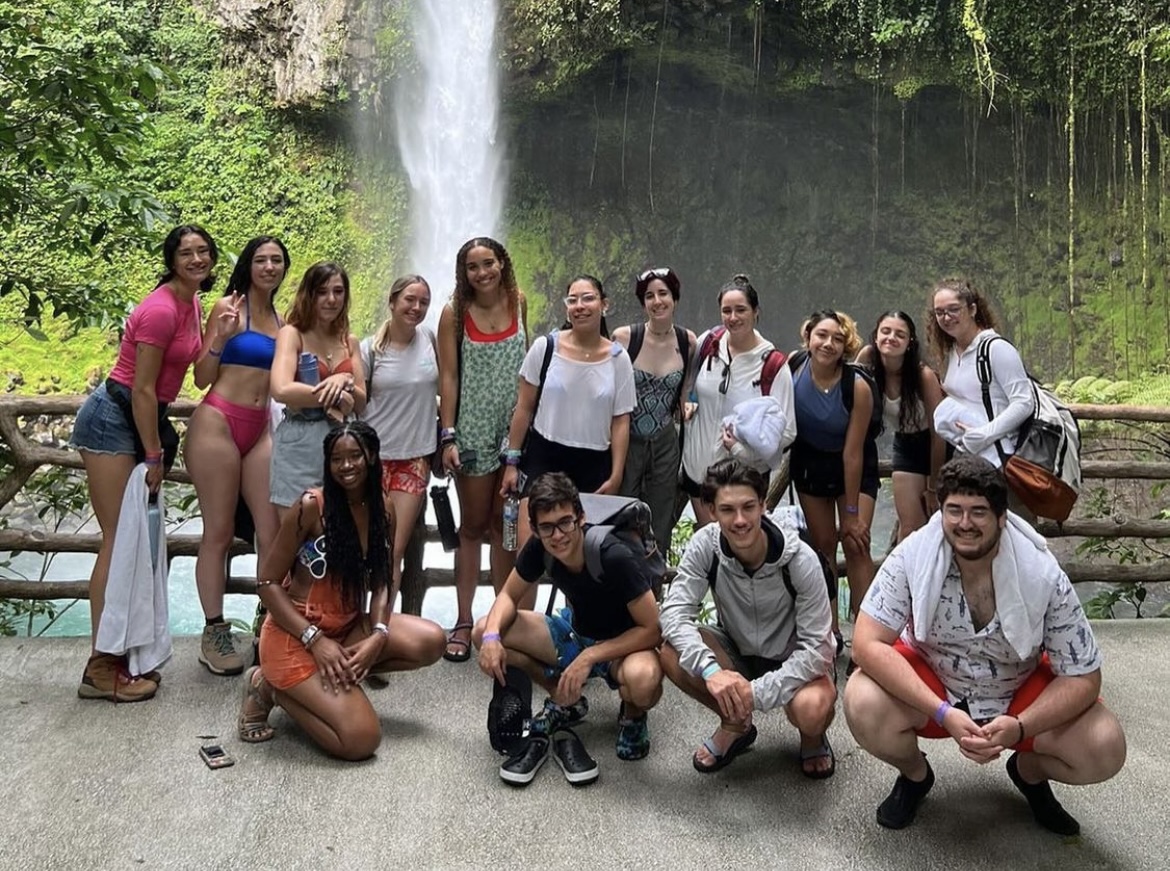
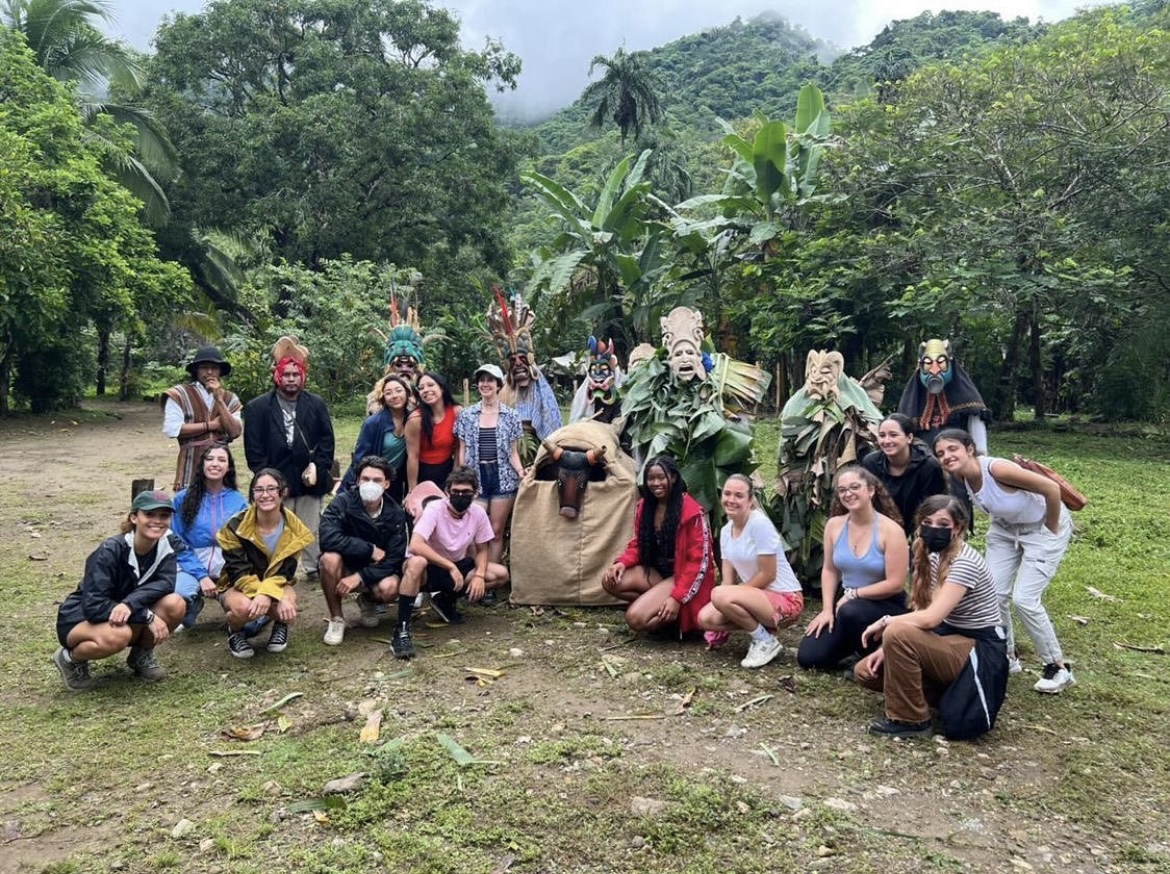
Travel Portion:
2024: (FULL)
Start: Tuesday, May 14
End: Monday, May 27
Price (airfare not included): $1,800
Overview
Why participate?
Costa Rica is determined to be the first carbon-neutral country in the world. This represent a big challenge, nut also a learning opportunity, to see the world “out of the box”. On the summer trip, students will focus on the country’s initiatives in social responsibility, sustainable development, biodiversity with an emphasis on tropical ecosystems, indigenous community, and the effects of global warming mitigation, as well as the relation people/nature. We will explore everything from chocolate and coffee tours to rainforest medicines, from volcanoes to beaches, from exotic birds to gulch-spanning ziplines, from crocodiles to frog ponds. At the Malecu Indigenous Reserve, students will work on service-research projects alongside local ecotourism directors, farmers and scientists who are working in cooperatives and research institutes that benefit both entrepreneurs and the local community.
Course focus
- Sustainability
- Culture
- Biodiversity
- Impact of economic, environmental, and social issues related to tourism and general business practices
- Indigenous Traditions
- Community Tourism
- Conservation
- Sustainable medicinal plants
- Unique Ecosystems
- Cooperative Model
- COURSE SYLLABUS: 2024 Syllabus
Program information
- Spring 2024 (on campus): IDH 4007 (3 credits) - MMC, Fridays, 8:30AM-11:20AM
- Summer A 2024 (abroad): IDH 4008 (3 credits) - May 14-May 27, 2024
Program highlights
- Hiking in national parks & private reserves
- Hiking near the Arenal Volcano
- Visiting & talking with members of indigenous tribes
- Chocolate & coffee tours
- Helping improve infrastructure of local schools at the Malecu Indigenous Reserve
- Explore the rich & diverse ecological landscape through boat rides, bird watching, nature walks, snorkeling, swimming & zip-lining
What is included
- Private bus transportation
- 13 nights in handpicked accommodations
- 15 breakfasts, 14 lunches, 13 dinners
- Expert Program Director
- 24/7 support from Program Director
- 8 tours with local guides (including rainforest chocolate, farm, forest canopy, crocodile boat, coffee & sightseeing tours)
- Snorkeling tour at Marino Ballena National Park
- Service-learning experience (10+ service hours)
- Admission to Tirimbina Rainforest Center, Arenal Volcano Observatory, La Fortuna Waterfall, and so much more
What is not included
- Roundtrip international airfare
- $195.00 Education Abroad administrative fee (OEA Fee)
- FIU in-state tuition (6 credits, $205.57 per credit)
- Passport, visa, and other necessary documents
- Personal expenses
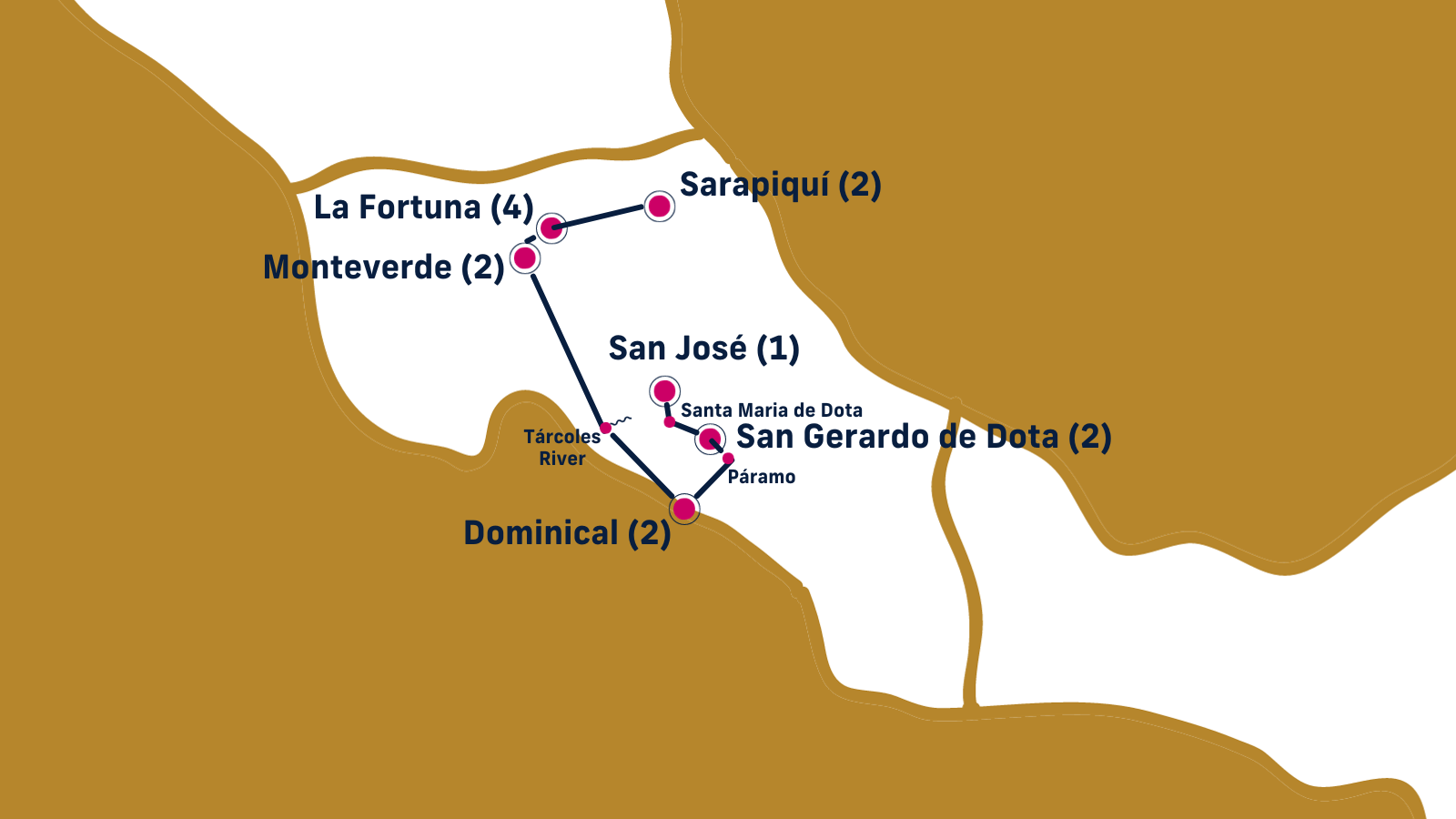
Key:
(#) = number of nights; squiggle line = boat
Itinerary
Day 1-2: Sarapiquí
Highlights include stop at La Paz Waterfall, hike at Tirimbina Rainforest Center, and hike at El Patrio
Day 3-6: La Fortuna
Travel to La Fortuna; hike at Arenal Volcano Observatory; chocolate tour; visit local NGO; visit La Fortuna Waterfall & Paradise Hotsprings; community service (Malecu Indigenous Territory)
Day 7: Travel to Monteverde
In the day, zip-line at Ecoglide, visit Arenal Lake and stop at Tejona Eolic Project. Travel overland to Monteverde with lunch on the way
Day 8: Monteverde
Visit Curicancha Nature Reserve & night hike at Children Eternal Rainforest
Day 9: Travel to Dominical
Overland travel to Dominical in the Pacific coast, with stop at Tárcoles River for a crocodile boat trip
Day 10: Dominical
Visit to Marino Ballena National Park where students will learn the role of local communities on the conservation of marine resources and will snorkel in the Pacific Ocean
Day 11: Travel to San Gerardo de Dota
Travel overland from Dominical to San Gerardo de Dota, with a stop at Páramo in Quetzales National Park
Day 12: San Gerardo de Dota
Highlights include hikes to Oak Forest & Savegre Waterfall
Day 13: Travel to San José
Travel overland from San Gerardo de Dota to San José, with a stop at Santa Maria de Dota town for a coffee tour
Day 16: End of Program
Breakfast at hotel and transportation to SJO airport; end of program
Program Director
Carolin Lusby

Dr. Carolin Lusby is an Associate professor in tourism at the Chaplin School of Hospitality & Tourism Management. She is the tourism lead and co-director of the Global Sustainable Tourism Program. She holds a PhD in Tourism and Natural Resources from the University of Florida and was recently granted a Fulbright Scholar Award in Brazil, where she does frequent consulting work in community-based tourism and collaborates with Brazilian universities in various research projects. A certified auditor in sustainability in tourism, Dr. Lusby is passionate about travel and connecting people to people while preserving natural and cultural resources. She is the author of the book: "Destination Unknown-Sustainable Travel and Ethical Tourism," and the chair of the special interest group in tourism of the World Leisure Organization. Her research and outreach are markedly international and driven by her desire to solve problems and create good for communities around the world. Her research output includes various grants from the US Department of State, publications, presentations, and multiple book chapters. As a certified Scuba instructor, she is passionate about sustainability in marine tourism. Trained as a guide and experiential educator, Dr. Lusby enjoys taking groups abroad to learn about sustainable tourism practices “hands-on”. Employing her extensive research and field experience, Dr. Lusby has developed several exciting new courses for the GST degree program including Global Sustainable Tourism Development in Natural Resources, and Sustainability and Well-being in Global Societies.
2024 Payment Schedule
|
1st Payment (Deposit)* |
2nd Program Payment* |
Spring 2024 |
3rd Program Payment* |
Education Abroad Fee* |
Summer A 2024 |
||||||
|
Deadline |
Payment |
Deadline |
Payment |
Deadline |
Payment |
Deadline |
Payment |
Deadline |
Payment |
Deadline |
Payment |
*Payments are non-refundable & non-transferrable
